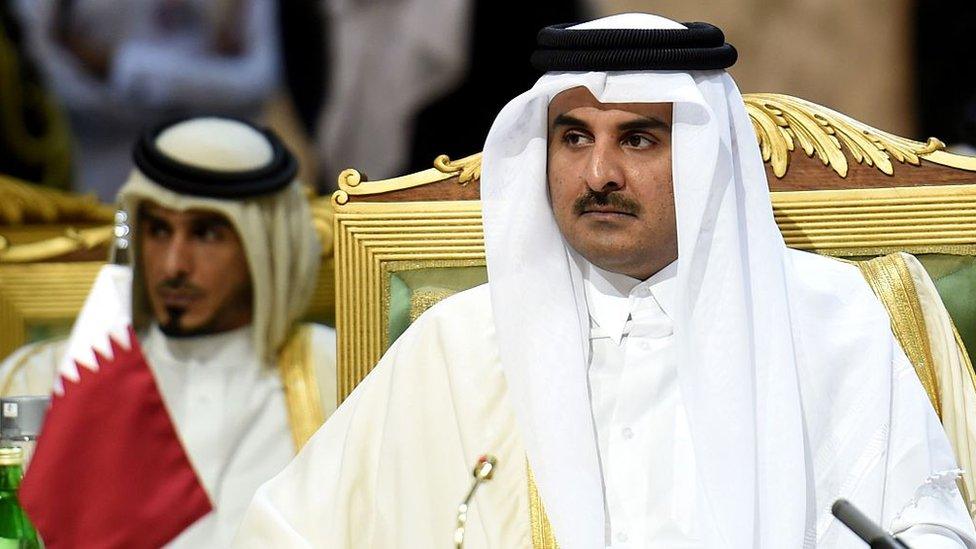Qatar crisis: Saudi Arabia and allies to meet in Cairo
- Published
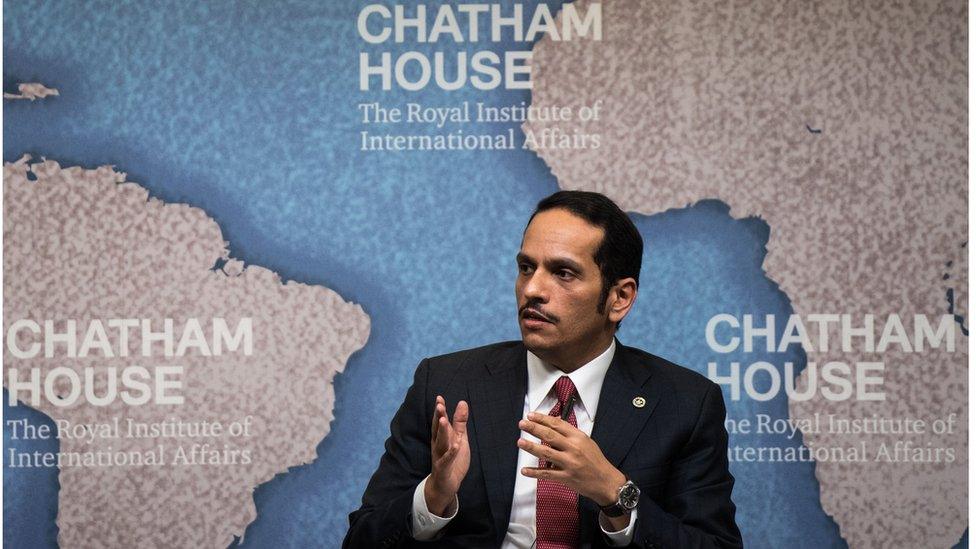
The Qatari foreign minister was talking to an audience in London
Bahrain, Egypt, Saudi Arabia and the United Arab Emirates are meeting to discuss the Qatar crisis, a month after they severed ties with the Gulf state.
The meeting of foreign ministers in Cairo comes on the day a deadline expires for Qatar to accept a list of demands or face further sanctions.
The demands to Qatar including shutting down the Al Jazeera broadcaster and scaling down ties with Iran.
Qatar has called the list of demands "unrealistic and not actionable".
Qatar is accused of destabilising the region by supporting extremism and terrorism - which it denies.
In London, Qatari Foreign Minister Sheikh Mohammed bin Abdulrahman al-Thani described the cutting of ties with his country as "a siege that is a clear aggression and an insult".
"The answer to our disagreement is not blockades and ultimatums, it is dialogue and reason," he said.
The tiny gulf emirate has been under unprecedented diplomatic and economic sanctions from Saudi Arabia, Egypt, the UAE and Bahrain.
The restrictions have caused turmoil in the oil- and gas-rich nation, which is dependent on imports to meet the basic needs of its population of 2.7 million.
On Monday, Saudi Arabia and its Arab allies gave Qatar an extra two days to accept their ultimatum for restoring relations, after an earlier 10-day deadline expired.
The authorities in Doha have responded to the demands - but no details have been publicly released. Qatar has said the demands break international law.
The four countries accuse Doha of harbouring Islamist groups that they consider terrorist organisations - including the Muslim Brotherhood - and giving them a platform on the Al Jazeera satellite channel, which is funded by the Qatari state.
Qatar denies the accusations.
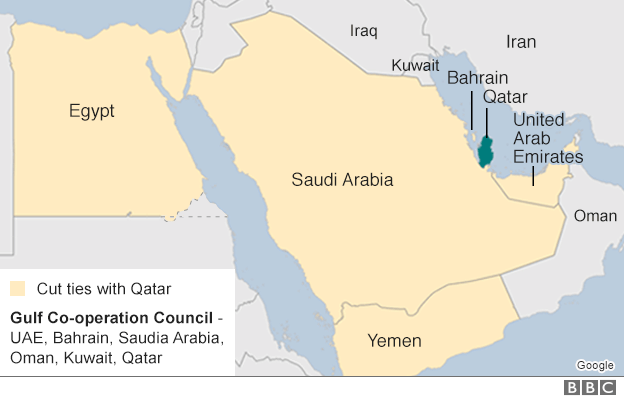
As a result of the sanctions, Iran and Turkey have been increasingly supplying Qatar with food and other goods.
On Tuesday, Qatar announced plans for a steep rise in Liquefied Natural Gas (LNG) production capacity over the coming years.
The country is the world's leading producer of LNG.
What are the other demands?
According to Associated Press news agency, which obtained a copy of the list, Qatar must also:
Refuse to naturalise wanted citizens from Bahrain, Egypt, Saudi Arabia and the UAE, in what the countries describe as an effort to keep Qatar from meddling in their internal affairs
Hand over all individuals who are wanted by the four countries for terrorism
Stop funding any extremist entities that are designated as terrorist groups by the US
Provide detailed information about opposition figures whom Qatar has funded, ostensibly in Saudi Arabia and the other nations
Align itself politically, economically and otherwise with the Gulf Co-operation Council (GCC)
Stop funding other news outlets in addition to Al Jazeera, including Arabi21 and Middle East Eye
Pay an unspecified sum in compensation
The demands have not been officially unveiled. Their publication has increased the friction between the two sides.

How did we get here?
5 June: A number of Arab countries including Saudi Arabia and Egypt cut diplomatic ties with Qatar, accusing it of destabilising the region. Measures include closing airspace to Qatar Airways
8 June: Qatar vows it will "not surrender" the independence of its foreign policy amid US calls for Gulf unity
23 June: Qatar is given 10 days to comply with a 13-point list of demands, including shutting down the Al Jazeera news network, closing a Turkish military base, cutting ties with the Muslim Brotherhood, and curbing diplomatic relations with Iran
1 July: Qatar's foreign minister says the state has rejected the demands, but is ready to engage in dialogue under the right conditions
3 July: Saudi Arabia and its allies extend by 48 hours the deadline for Qatar to accept their list of demands
- Published3 July 2017
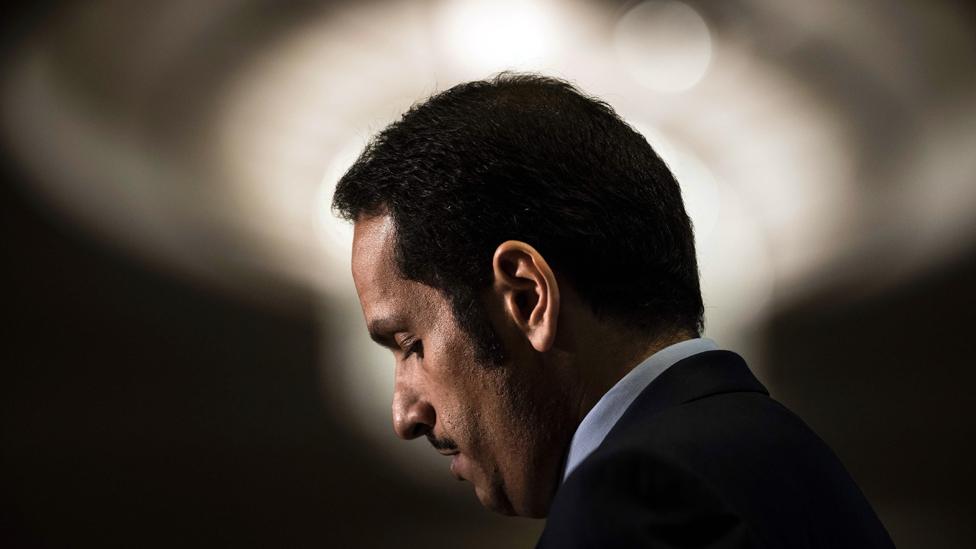
- Published3 July 2017
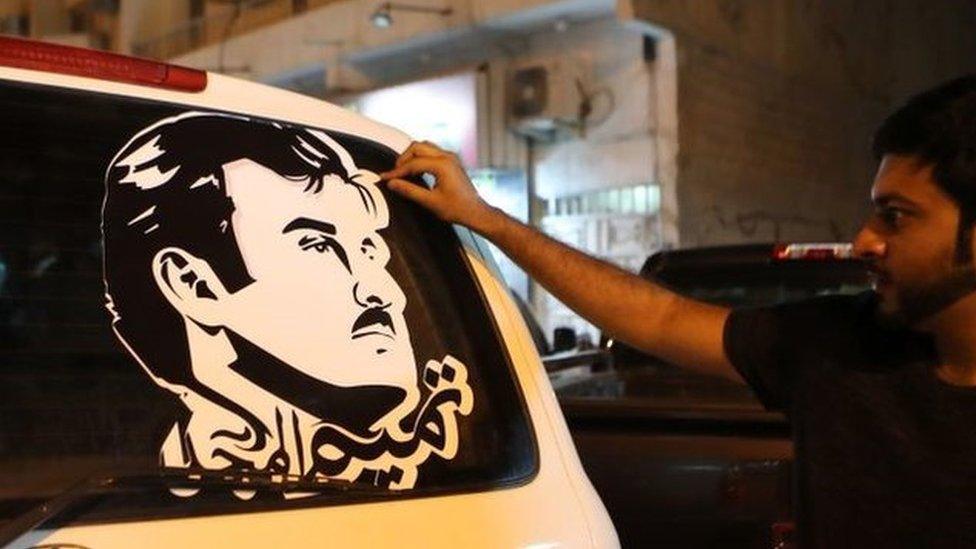
- Published28 June 2017
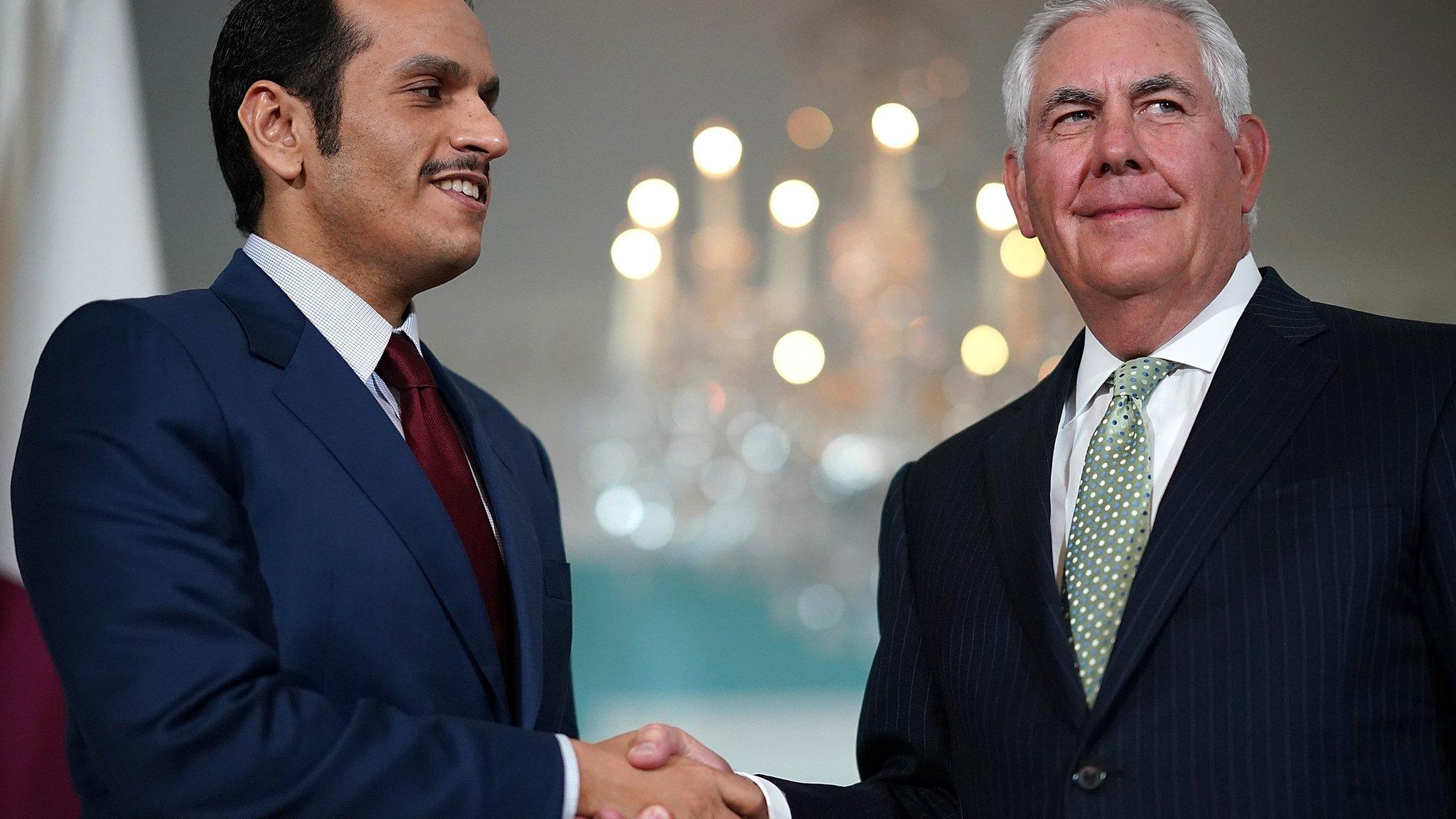
- Published23 June 2017
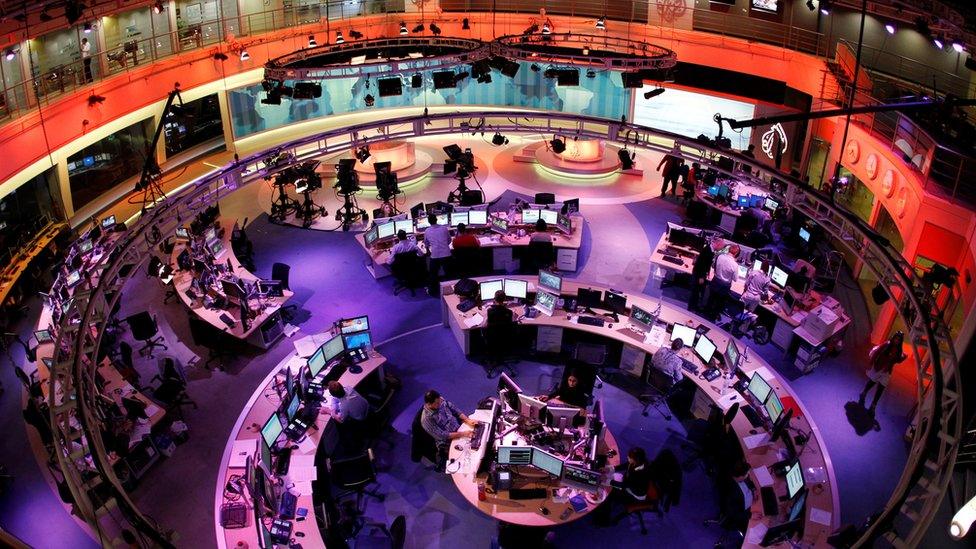
- Published13 June 2017
